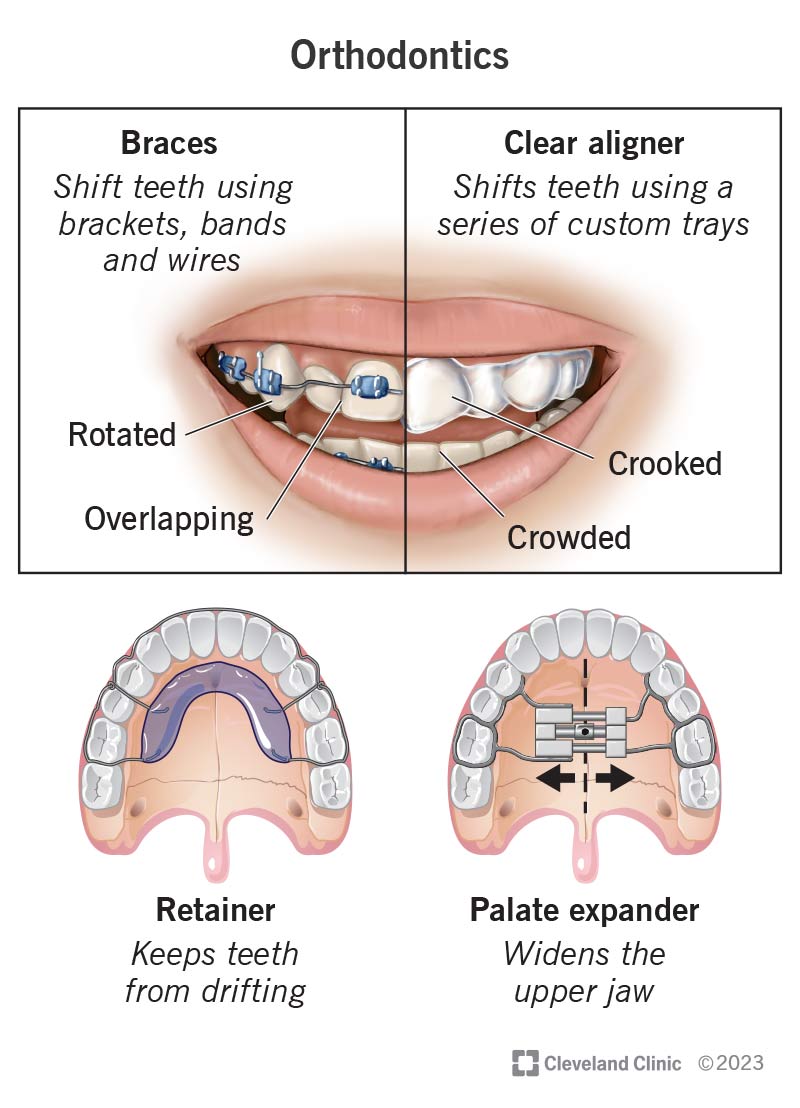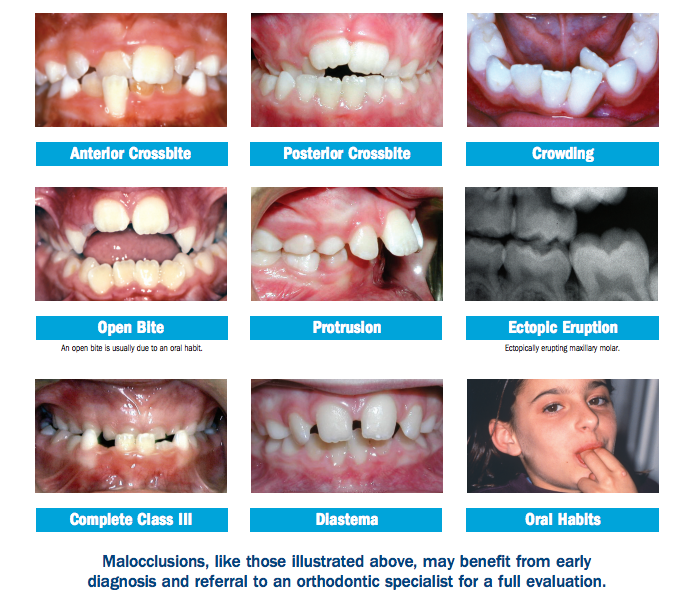Causey Orthodontics Fundamentals Explained
Causey Orthodontics Fundamentals Explained
Blog Article
All About Causey Orthodontics
Table of ContentsSome Known Factual Statements About Causey Orthodontics Causey Orthodontics - An OverviewAll About Causey OrthodonticsThe Facts About Causey Orthodontics RevealedThe Of Causey OrthodonticsThe Single Strategy To Use For Causey OrthodonticsThe Basic Principles Of Causey Orthodontics
What is the difference in between a dental expert and an orthodontist? To answer a question that is frequently asked, both dental experts and orthodontists assist people obtain better dental health, albeit in different methods. It helps to bear in mind that dentistry is a rather wide science with different clinical specializations. All dentists, including orthodontists, deal with the teeth, periodontals, jaw and nerves.
You can think of both doctors that treat gum and teeth problems. The main distinction is that becoming an orthodontist requires a certain specialty in dealing with the misalignment of the teeth and jaw.
What Does Causey Orthodontics Mean?
An orthodontist is a dental professional that has undertaken training to specialize in the medical diagnosis, avoidance and therapy of abnormalities in the jaw and teeth. They can likewise identify potential troubles in teeth alignment that may establish when problems are left without treatment (emergency orthodontist near me).
This includes all the necessary education and learning to end up being a basic dentist. According to the American Pupil Dental Association (ASDA), it means you will need to have either a Medical professional of Medication in Dental Care (DMD) or a Medical Professional of Oral Surgical Treatment (DDS). To put it simply, orthodontists need to complete dental college and then acquire an orthodontics specialized education and learning.
Some orthodontists additionally get their masters in craniofacial biology. These programs focus on 2 details locations or techniques: Dentofacial Orthopedics: This study focuses on assisting teeth and jaw advancement.
An Unbiased View of Causey Orthodontics

 The overall objective of an orthodontist is to improve a person's bite. Not every person is born with straight teeth, and an orthodontist will ensure that patients obtain evenly spaced straight teeth.
The overall objective of an orthodontist is to improve a person's bite. Not every person is born with straight teeth, and an orthodontist will ensure that patients obtain evenly spaced straight teeth.
Not known Incorrect Statements About Causey Orthodontics
The American Organization of Orthodontists suggests your very first check up by age 7. You'll need to see your orthodontist if you have an imbalance in your teeth, additionally called malocclusion. Likewise, if you notice irregular bite patterns, a slightly twisted jaw, or when your teeth are overcrowded, you will likely require orthodontic treatment.
At Advanced Orthodontics, we give individuals with a alternative treatment experience. Additionally, we provide adjustable therapy timetables, flexible settlement choices and an enjoyable, delightful experience. Phone call ( 480) 357-4900 today to learn more and routine a visit.
An orthodontist is a dental practitioner trained to detect, avoid, and treat teeth and jaw abnormalities. Orthodontists function with individuals of all ages, from youngsters to grownups (https://www.pexels.com/@causey-orthodontics-1624285234/).
An Unbiased View of Causey Orthodontics
Malocclusion, or misaligned teeth, can result in dental issues, consisting of tooth degeneration, gum tissue condition, and tough or painful chewing. Yet not every person is birthed with straight teeth. If you have a bad bite or large areas in between your teeth, you might wish to consult a dental expert specializing in orthodontic treatment.
(Image Credit Score: DigitalVision/Getty Images) Orthodontists make use of fixed and detachable oral gadgets, like braces, retainers, and bands, to change the placement of teeth in your mouth. Orthodontic treatment is for oral irregularities, including: Misaligned teethBite issues, like an overbite or an underbiteCrowded teeth or teeth that are as well far apartJaw misalignmentThe goal of orthodontic therapy is to boost your bite.
Fascination About Causey Orthodontics

, but not all dental experts are orthodontists. They concentrate on 2 areas: Just how to appropriately and safely relocate teeth Exactly how to appropriately guide advancement in the teeth, jaw, and faceOnce an orthodontist has finished training, they have the alternative to come to be board certified.
Misalignment, or malocclusion, is one of the most typical reason individuals see an orthodontist. It is genetic and is the result of size distinctions in between the upper and lower jaw or in between the jaw and teeth. orthodontist expert. Malocclusion brings about tooth overcrowding, a twisted jaw, or uneven bite patterns. Malocclusion is typically treated with: Your orthodontist affixes steel, ceramic, or plastic square bonds to your teeth.
The 30-Second Trick For Causey Orthodontics
If you have just small malocclusion, you might have the ability to utilize clear braces, called aligners, as opposed to traditional braces. Some people require a headgear to aid relocate teeth into line with stress from outside the mouth. After dental braces or aligners, you'll require to wear a retainer. A retainer is a customized tool that maintains your teeth in place.
Report this page